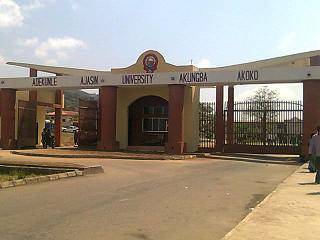Why there is a rise in Japa syndrome, by Don


Professor Femi Mimiko, a former vice chancellor of Adekunle Ajasin University, Akungba (AAUA), has noted that among the causes of the mass exodus of young people from Africa are political dysfunction, shrinking economic prospects, and insecurity.
During his keynote speech at The InterNational Education (TINE) Africa Summit and Awards in Lagos, Mimiko stated that quality education without interference in the academic calendar is what attracts younger Africans.
At the summit hosted by Laprinxo Consult, an organisation that supports international universities administratively, the former vice chancellor bemoaned the difficulties facing the country’s educational system, which include poor teaching and learning resources and an unfavourable learning environment.
While disputing the notion that Nigerian graduates lack employability, Mimiko pointed out that the curriculum should be enhanced to incorporate critical thinking and instruction in fundamental life skills.
He said: “A clear manifestation of the difficult situation in the Nigerian higher education system is the general instability in the academic calendar. The Academic Staff Union of Universities (ASUU), according to reports, went on strike 16 times between 1999 and 2023. largely because of government’s insensitivity and perfunctory treatment of education. This would roughly equate to one year of strike in every five years, implying that the country actually lost cumulative four years in 23 years due to ASUU strike.
“It is also becoming increasingly difficult to cultivate and sustain a positive attitude to work among many universities’ faculty and staff, especially in the face of the increasing dominance of the system by staff unions, which sometimes do actually overreach themselves. While quite a lot of these challenges could be traced to the perfunctory manner in which lecturers are treated, there is generally poor work ethics in the country’s public sector, which has since crept into the universities.
“Dwindling proprietorial funding also ensured that universities, even under the best of management, cannot do so much. This becomes quite a bit of challenge in the face of massification, bogus class sizes, shortage of critical training tools, and a professorial remuneration package that actually disincentives.
“The whole gamut of education abroad would, therefore, seem to be higher in quality, if not in terms of curriculum; but certainly, in relation to equipment, environment and instructors, than what obtained in Africa,” Mimiko added.
While justifying the Japa syndrome, Mimiko said studying abroad for young people is the direction the world is threading, and African students should not be left out.
According to him, African students who return to the continent after completing their studies abroad positively impact their mates, particularly where a system is created to leverage their knowledge, exposure, and contacts.
“It is after all, a globalised, knowledge economy, and no nation does well by sequestering its youths at home. Africa has not much to lose by the streaming abroad of its young citizens for quality education, in a much more cosmopolitan context. This goes to enhance their capacity and relevance, not just to their own continent, but humanity in general.
“India has the largest diaspora population in the world, with 17.9 million in 2022. It is closely followed by Mexico at 11.2 million, and Russia at 10.8 million. China has 10.7 million of its people outside of the country,” he added.
The convener, Louis Adekola, explained that the summit was aimed at bringing together, representatives of universities abroad to share experiences, lessons and best practices.
“How do we ensure there’s high professionalism in the system? How do we ensure that people have all the supports that they need? How do we ensure universities recruiting from the continent of Africa are also giving back? At the end of the day, we’re trying to remind ourselves that our work is beyond students marketing and recruiting. We are helping to support dreams,” Adekola said.
He also reminded that no education system is perfect. and tasked stakeholders on the need to design the curriculum along the country’s needs.
He said: “We need lecturers who would align their teaching with best practices, and it’s important that students are involved in the knowledge creation process. If we’re trying to build our education system like Finland, the United Kingdom or United States, we will constantly not be achieving our set goals because we need to understand that beyond their system, they have their own culture that fits into it. If we don’t have that culture and we have that system, it will continue to falter.”









